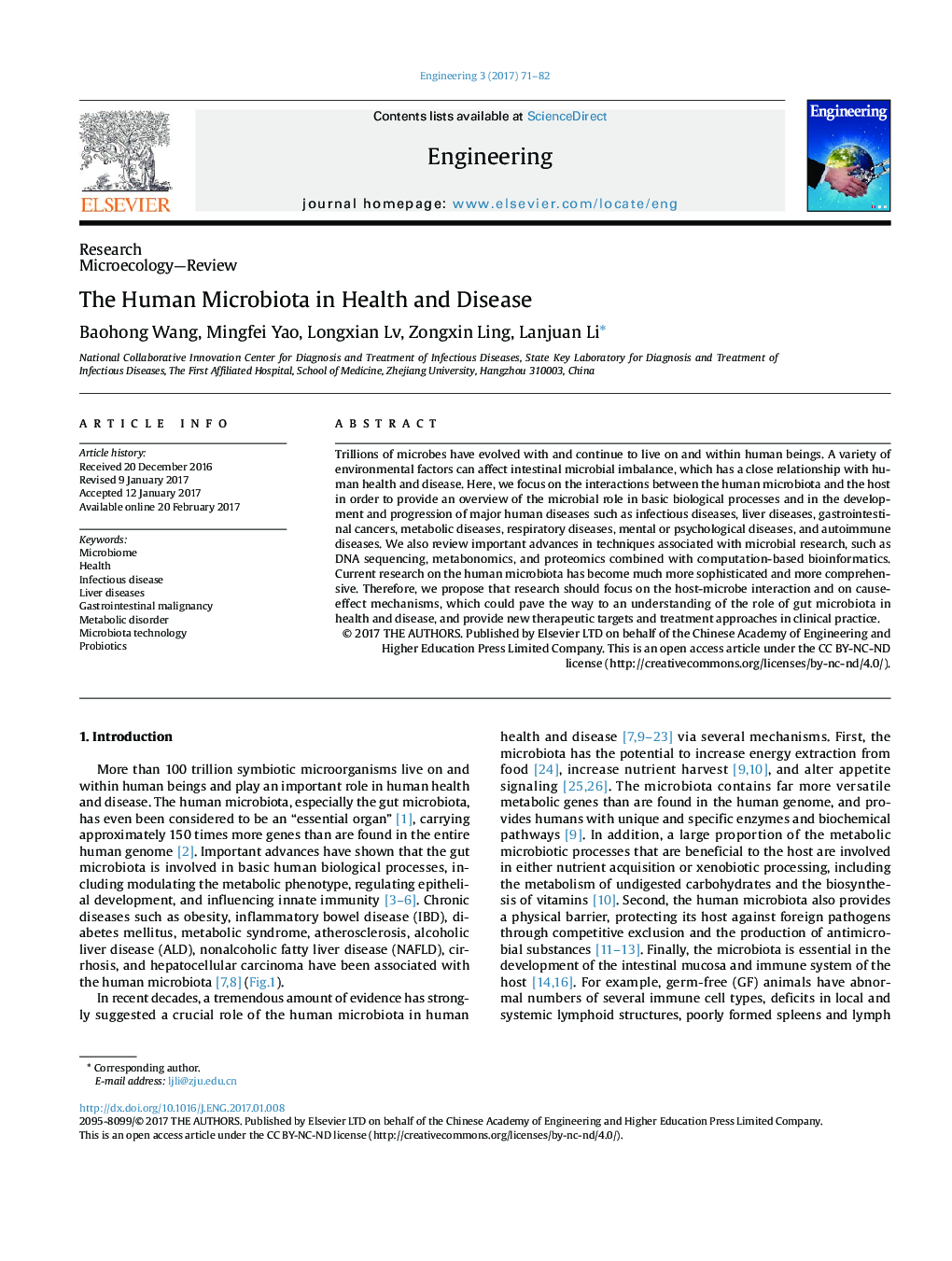| Article ID | Journal | Published Year | Pages | File Type |
|---|---|---|---|---|
| 4959220 | Engineering | 2017 | 12 Pages |
Abstract
Trillions of microbes have evolved with and continue to live on and within human beings. A variety of environmental factors can affect intestinal microbial imbalance, which has a close relationship with human health and disease. Here, we focus on the interactions between the human microbiota and the host in order to provide an overview of the microbial role in basic biological processes and in the development and progression of major human diseases such as infectious diseases, liver diseases, gastrointestinal cancers, metabolic diseases, respiratory diseases, mental or psychological diseases, and autoimmune diseases. We also review important advances in techniques associated with microbial research, such as DNA sequencing, metabonomics, and proteomics combined with computation-based bioinformatics. Current research on the human microbiota has become much more sophisticated and more comprehensive. Therefore, we propose that research should focus on the host-microbe interaction and on cause-effect mechanisms, which could pave the way to an understanding of the role of gut microbiota in health and disease, and provide new therapeutic targets and treatment approaches in clinical practice.
Keywords
Related Topics
Physical Sciences and Engineering
Computer Science
Computer Science (General)
Authors
Baohong Wang, Mingfei Yao, Longxian Lv, Zongxin Ling, Lanjuan Li,
